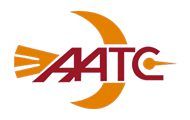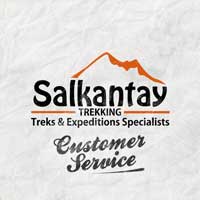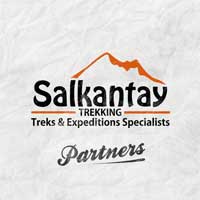The Ultimate Ausangate Trek Packing List Tour Guides
You’ve booked your trek on one of the best alternative routes in the Cusco region—the Ausangate Trek!
There’s no doubt you’re raring to go and get out into the incredibly beautiful Andean mountain range. But first, you need to make sure you plan and take everything you need with you. This trek takes you to high altitudes and you’ll experience very low temperatures at night.
Don’t worry…
We’ve got your back and put together the ultimate packing list for the Ausangate Trek. As long as you make use of this detailed guide, you’ll be more than prepared for the epic journey.
We believe in using only the best gear on the route to ensure ultimate protection from the elements and sheer comfort for you. Read on for our detailed guide and expert recommendations.
There’s no doubt you’re raring to go and get out into the incredibly beautiful Andean mountain range. But first, you need to make sure you plan and take everything you need with you. This trek takes you to high altitudes and you’ll experience very low temperatures at night.
Don’t worry…
We’ve got your back and put together the ultimate packing list for the Ausangate Trek. As long as you make use of this detailed guide, you’ll be more than prepared for the epic journey.
Detailed Ausangate Trek Packing List
Documents
Original Passport
You need your passport to get into Peru, but you should also always carry it on your person. Certain sites won’t let you in without it and it’s always a good idea to carry it in case of an emergency.
Backpack and Duffle Bag
Backpack
We’ll be carrying your duffle bag for you, which means all you need to take during the day is a backpack. You want it to be lightweight and just hold the essentials—snacks, water, camera, sunscreen, etc.
We recommend a model with compression straps to reduce weight stress on your back, and side mesh pockets for quick access to your water bottle. The Osprey Talon is our recommended backpack.
It’s important you bring a rain cover for your backpack as you never know when it’ll rain in the Andes. If you decide to use an Osprey backpack, then make sure you get an Osprey Rain cover that matches the bag size for a snug fit—the same goes for other brands.
Duffle Bag(included in the service)
At the briefing, the night before the trek, you’ll have a meeting with your guide. We’ll also take this opportunity to provide you with a duffle bag. Here, you’ll pack all your clothes and trekking essentials. You have a maximum weight allowance of 7 kg/15.4 lbs.
Along the trek, we’ll carry this for you, as well as all the camping equipment and food for the duration of the trip. Please note that you won’t be able to access this bag during the day—you’ll only have it at the campsites.
Throughout the day, you’ll need to carry a backpack that you can put the items you’ll need while hiking. This includes a warm jacket, raincoat, camera, sunscreen, snacks, water, etc. A 30-liter backpack is usually sufficient.
Clothing
Underwear
Perhaps the most important layer of all, and the first you put on, is underwear. We recommend bringing 4–6 x pairs of breathable sports underwear to help you stay comfortable while trekking.
We can’t get enough of Icebreaker underwear, Adidas sports underwear, or Under Armour underwear—these brands specifically focus on making products that can cope with sweat from high-intensity exercise and sports.
Base Layer
This is sometimes referred to as the next-to-skin or first layer—here, we’ll call it the base layer. This is essential when you reach higher parts of the Ausangate Trek where it gets very cold and often below freezing.
The best first layers fit snugly to the body (reducing air pockets and flow) and are made of high-wicking materials to facilitate moisture transfer.
Trekking Shirts
You’ll need to bring a trekking shirt for every day of the trek. We highly recommend these breathable and lightweight shirts from Hanes. Or, if you prefer, shirts from Icebreaker or Columbia are also top quality.
Don’t bring cotton shirts because these absorb moisture and can make you feel very uncomfortable.
Hard Shell Jacket and Rain Gear
There’s always the likelihood of rain when trekking in Peru, especially during the rainy season (October-March). You should carry a hard-shell jacket for ultimate protection when it’s wet, like the North Face Resolve Jacket.
We also suggest you take a compact rain poncho that can quickly be put on in the event of light showers.
Insulated Jacket
The outer layer or third layer is usually made up of a windproof, waterproof, and most importantly, warm jacket and pants. These items are essential in the colder parts of the Ausangate Trek at high altitudes.
We suggest you equip yourself with a high-quality jacket because it’s one of the few essential items that’ll ensure your warmth and comfort along the route.
We are fans of the North Face Nuptse Jacket—a market-leading winter jacket—but there are many synthetic alternatives that do a great job.
In terms of the Nuptse, the warmth and weight characteristics are outstanding. The Nuptse is a lifetime investment—the jacket will last years of active trekking and double well as a winter jacket in the city. Other top jacket brands include Patagonia Down Jacket, Arc’Teryx Atom, and Mountain Hardwear Down Jackets.
Fleece Jacket
Under the outer layer, you need a warm second layer to insulate you, which is why we call it the insulation layer. Fleece material is the best for this.
One of our favorites is the Polartec 200 Fleece Jacket. These insulation jackets are perfect for hiking as they provide a great warmth to weight ratio whilst allowing effective moisture transfer. The Polartec 100s are lighter but not warm enough for the Ausangate Trek, whereas the Polartec 300s are too heavy, in our opinion. Don’t forget that you need to travel light.
Some other top fleece brands include Helly Hansen, The North Face, and Patagonia.
Trekking Pants
Another extremely comfortable item of clothing you need for the trek is trekking pants. Our top recommended brands are Craghoppers, Columbia, or O’Neills. Bring a couple of pairs to last a few days on the trail.
Pajamas
A campsite essential—pajama pants. Or, if you prefer, sweatpants do the job just as well. After a long day on the trail, you want to relax in comfort. What better item to keep you warm and cozy throughout the evening and night?
Inner Gloves
Inner gloves are like the next-to-skin layer for your hands—or the base layer. You need a lightweight model that dries quickly. A fleece material is ideal.
We really like Pearl Izumi Thermal Lite Gloves, which can also be used as standalone gloves when the weather is moderately cold. Karrimor is another excellent brand.
Outer Gloves
Similar to your outer layer jacket, outer gloves are like a shield that protects you from very low temperatures. They need to be warm, waterproof, and durable. Gore-Tex gloves from Dakine or similar options from The North Face, Outdoor Research, or Black Diamond are some of the best.
Headgear
Sun Hat for Protection
A hiking hat is a must on the Ausangate Trek. You’re extremely close to the sun here and need to protect your face and neck from the UV rays. You can burn in minutes if you aren’t protected.
Your hat should be light and easy to bend/fold so that it can fit into your backpack or rucksack. Trekking hats with a neck cover are great to give you ultimate protection.
Headband or Beanie
Another headgear essential is a headband or beanie to withstand the freezing temperatures in the evenings and early mornings. As you reach higher altitudes, you’ll feel your head get cold very quickly, like your hands.
A warm fleece beanie or fleece headband are absolute must-haves. Berghaus and The North Face make some wonderful beanies that are perfect for trekking in the cold.
Neck Gaiter or Balaclava
A neckband or balaclava to keep your neck and face warm when temperatures drop below freezing is another Ausangate Trek essential.
We strongly advise taking one fleeced buff and one thin buff.
Buffs are super adaptable and can be used as headbands, beanies, neck gaiters, and wristbands, as shown in the image.
Footwear
Hiking Boots
The most crucial piece of trekking gear is your hiking boots as they’re what get you from one place to the next. You wouldn’t be hiking without them!
Boots that don’t fit properly are a trekkers nightmare and can cause damaged toenails, painful blisters, and all-around sore feet.
To find a pair that fits you just right, put your foot in a boot without tying the shoelaces. Once in, slide your foot all the way forward until the toes hit the front end. You should be able to place your index finger down the back of the boot between your heels. If your finger has lots of room to move then the shoe is too big, but if you find it difficult to get your index finger into the boot, then the shoe is too small.
Some of our top-recommended hiking boot brands are: Scarpa, Salomon—we like the Quest range—, Berghaus—we like the Explorer range—, Hi-Tec, and Karrimor.
Trekking Shoes/Sandals
Your feet will be tired and perhaps a little sore after hours of trekking each day. What better way to give them some TLC at the end of the day than with a comfy pair of trekking shoes or sandals. We love Merrel trekking shoes, and trekking sandals are great to wear with warm socks for maximum comfort.
Hiking Socks
Another essential footwear item for optimum comfort is hiking socks. You need a pair a day as well as high-wicking sock liners.
We applaud Coolmax hiking socks, as they provide superior breathability and have incredible wicking properties. Smartwool, Bridgedale, and Point 6 also make great socks.
Don’t use cotton socks on the trek, as these will lead to nasty blisters and sweating.
Thermal Socks
You know that the Ausangate Trek will get cold, so thermal socks are a must. Bring a few pairs for the highest parts of the trail where temperatures drop.
We really like Smartwool thermal socks, as they’re really warm, provide great cushioning for the foot, and have flat seams (bulky seams result in blisters).
Other reputable brands include Wigwam and Bridgedale.
Gaiters
Gaiters are made from waterproof material and extend up from your boot to the top of your calf.
Trekkers use gaiters to stop water, dust, mud, snow, ice, and small stones from getting into their hiking boots.
Sleeping Bag
Sleeping Bag
On the Ausangate Trek, you need to bring a very warm sleeping bag with you to withstand the cold temperatures at night. It’ll often go below 0°C.
The top models of sleeping bags are produced using a duck or goose down, but this also makes them much more expensive. If you’re strapped for cash, a warm synthetic alternative will do just fine. You make sure that it has a rating of at least -15°C.
We recommend a sleeping bag that has a mummy shape with an insulated hood and draw cord so that it fits the forms of your body. Two-way zippers for more reliable insulation are great.
We highly value the following brands and models: The North Face Snow Leopard, Marmot Trestles, Mountain Hardwear Phantom Highlander, or Coleman.
Important Accessories
Trekking Poles
Walking poles are an optional item but one we tend to recommend. They can really help the tough impact on knees and ankles by up to 20%. They are fantastic for descents, as this is when you’ll experience the most pressure on your joints.
We advise getting light-weight (around 350 grams per pair) and adjustable trekking poles, as they are simple to store and very adaptable. Black Diamond walking poles are great, as are Leki poles.
Sunglasses
In Cusco, Peru, the UV rays are very strong as you're at such high altitude. On the Ausangate Trek, you’ll be heading even higher.
You should take a quality pair of UV protection sunglasses (minimum of 80% light reduction). We suggest mountain sunglasses from Julbo.
Flashlight or Headlamp
Even though you won’t be heading out on the trail after dark, you’ll still sometimes need to go to the bathroom or perhaps read before going to sleep. A lot of the campsites are poorly lit or have no electricity whatsoever, so extra lighting is very helpful.
Petzl Tikka is the best headlamp brand. Don’t forget to bring spare batteries, too.
Water Bottle or Hydration Bladder
At high altitude, it’s much easier to suffer from dehydration, and keeping your body topped up with 2–3 liters a day is a must. Otherwise, you risk suffering from heatstroke or dizziness, which could lead you to missing out on the rest of your hike.
Water can be taken in a standard water bottle—we recommend getting 2 x 1L CamelBak Water Bottles.
Or, if your daypack includes a place for a hydration bladder, then the 2L Platypus Hydration Bladder is a wonderful item.
Camera
There’s no doubt that the most spectacular part of the Ausangate Trek is the scenery, so you’re bound to want to capture some incredible photos. If you don’t have a great HD camera, it’s time to invest.
Below are some recommended and affordable Digital SLR cameras. Remember, you want to ensure your camera is lightweight but still able to capture high-quality images.
We suggest the Panasonic Lumex. If you’re more likely to take videos, then you might want to consider a GoPro.
Notebook/Journal & Pen
This item isn’t an absolute essential, but if you like to write and would love to chronicle your trip, we recommend it. It’ll be a great way to look back and remember your trek in detail.
Personal Gear and Medication
-
Trekking Towel
A small to medium-sized hiking towel can come in very handy. LifeVentures or Discovery sell good, quick-drying trekking towels.
-
Cash
Along the route, there are spots to buy snacks and water. It’s also a great idea to have extra cash (S/300–S/400) in case of an emergency.
-
Toilet Paper
You might need to go to the bathroom during the day. You’ll need toilet paper as most toilets don’t usually provide this.
-
Portable Power Pack
Don’t forget this essential so you can charge anytime, anywhere. Remember, there are no places to charge devices on this route.
-
Small Locks
To protect your belongings in your backpack or duffle bag.
-
Waterproof Ziplock Bags
These come in handy for storing important/valuable items like your money, passport, and electrical equipment
-
Isotonic Powder
Can be used to flavor your water and helps replace electrolytes, improving energy levels and aiding water absorption.
-
Diamox
Also known as acetazolamide, this is a medication that can be used as a prophylactic (preventative) solution for altitude sickness. It does not cure altitude sickness and should never, therefore, be used as a method to continue ascending to high altitudes. It can, however, help prevent the onset of altitude sickness and is commonly used by high altitude climbers and trekkers.
-
General Medications
We recommend taking paracetamol or aspirin for headaches (a common altitude sickness symptom on the Ausangate Trek) and Imodium for diarrhea.
-
Basic First Aid Kit
If you’re joining an organized trek, your guide will most likely be carrying a first aid kit. If you’re hiking unsupported or independently, then a first aid kit is a must.
-
Sunscreen/Lip balm
No one wants burnt skin or cracked lips—both common at this altitude. Be sure to bring 1 x sunscreen (SPF 50+) and 1 x lip balm.
-
Baby Wipes/Body Wipes
For quick and easy wet washes when no showers are in sight! Bring 1 x baby wipes or body wipes.
-
Blister Plasters
The dreaded blisters! We recommend taking Compeed blister plasters
-
Hand Sanitizer
Great for disinfecting hands before and after eating, or when they get dirty during the hike.
What to Pack in Your Backpack
We’ve already stated how important it is to have a lightweight, quality backpack to carry the necessities during the day. However, you might still be wondering what needs to go in there and what to pack in your duffle bag. Well, don’t worry. We’ve compiled a checklist of everything that needs to go in your backpack for the daytime.
- Rain jacket/poncho
- Fleece
- Sunhat/beanie
- Water bottle
- Sunscreen
- Personal medication
- Toilet paper
- Cash
- Passport
- Camera
Find the Perfect Destination in Peru
With astonishingly varied landscapes, stunning scenery, compelling history, and a legacy of fascinating cultures, there is truly something for everyone. Our expeditions in Peru are designed to showcase all that this country has to offer.
Our expeditions in Peru are designed to showcase all that this country has to offer.










